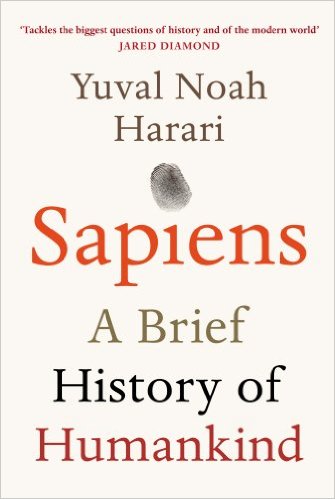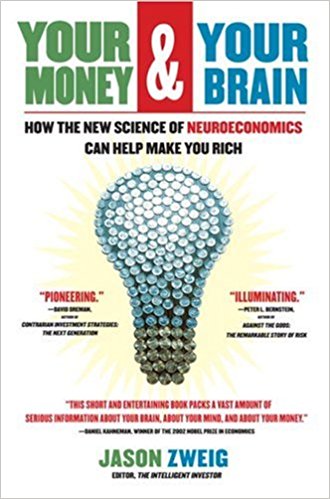

I read a lot.
Investing, wealth and personal finance books feature heavily on my Kindle.
But I’m equally keen on books about learning, thinking, and decision making.
These books enable you to lead a better life.
What follows is not an exhaustive list but are books I go back to time and again.
And return wiser.
These are my favourite.
Poor Charlie’s Almanack (2005)
.png?width=485&name=Poor%20Charlie%E2%80%99s%20Almanack%20(2005).png)
Contrary to popular belief, Poor Charlie’s Almanack is not about how to become a successful investor.
It’s a book on how to live a happy, sensible and rich life.
While becoming a better thinker and investor in the process.
Munger’s ideas inspire me.
Some make me uncomfortable.
But all challenge me to think outside the box.
A favourite part of mine is where we learn about “Mungerisms”.
Where Munger dispels hundreds of ideas on subjects ranging from life, investing, academia, financial engineering, accounting, money management business, and managements.
Here’s a Mungerism on getting rich:
Spend each day trying to be a little wiser than you were when you woke up. Discharge your duties faithfully and well. Step by step you get ahead, but not necessarily in fast spurts. But you build discipline by preparing for fast spurts. Slug it out one inch at a time, day by day. At the end of the day – if you live long enough – most people get what they deserve.
Here’s one on envy:
If you are comfortably rich and someone else is getting richer faster than you by, for example, investing in risky stocks, so what? Someone will always be getting richer faster than you. This is not a tragedy.
A Few Lessons from Sherlock Holmes (2013)
.png?width=323&name=A%20Few%20Lessons%20from%20Sherlock%20Holmes%20(2013).png)
This is a brilliant book from Peter Bevelin.
He has distilled Arthur Conan Doyle’s Sherlock Holmes into bite-sized principles and key quotes.
In fact, this book is much more than a collection of quotes.
It is a way to learn the powers of observation, understand the limits of our mind, and counter the narrative fallacy.
Sherlock Holmes is the epitome of rationality.
When it comes to making business decisions, rational thinking goes a long way.
It appeals to my love of data.
At the start of the book, Bevelin quotes mathematics and science writer Martin Gardner who says this about Sherlock Holmes:
Like the scientist trying to solve a mystery of nature, Holmes first gathered all the evidence he could that was relevant to his problem. At times, he performed experiments to obtain fresh data. He then surveyed the total evidence in the light of his vast knowledge of crime, and/or sciences relevant to crime, to arrive at the most probable hypothesis. Deductions were made from the hypothesis; then the theory was further tested against new evidence, revised if need be, until finally the truth emerged with a probability close to certainty.
Fooled by Randomness (2001)
.png?width=322&name=Fooled%20by%20Randomness%20(2001).png)
A great lesson for anyone seeking to master investing.
The central idea of Fooled by Randomness from Nassim Taleb is that the world we live in today is more random than we like to think.
Through millions of years of evolution, nature has hardwired the human brain to seek patterns and consistencies everywhere.
But as civilization has progressed the world around us has become increasingly uncertain and unpredictable.
The main culprit for our inability to acknowledge the randomness is hindsight bias.
When we look back at things that have happened we see them as less random than they were.
20/20 vision.
Once we know the outcome of an event, we find it hard to imagine the other possible ways in which things could have happened.
Letting randomness fool us is dangerous.
Especially when it comes to investing.
The Art of Learning (2007)
.png?width=348&name=The%20Art%20of%20Learning%20(2007).png)
This is one of the best books I’ve read.
Its author Josh Waitzkin is a US champion in both chess and martial arts.
In The Art of Learning, Josh recounts his experiences and shares his insights.
He shares how you can learn and excel in your own life’s passion.
He reveals the inner workings of his everyday methods, cultivating the most powerful techniques in any field, and mastering the psychology of peak performance.
One of my favourite chapters from Josh’s book is titled Making Smaller Circles.
It describes how it’s rarely a mystery when we succeed, but rather the profound mastery of a basic skillset.
A key takeaway is that depth scores over breadth when it comes to learning anything.
The learning principle is to plunge into the detailed mystery of the micro in order to understand what makes the macro tick. Our obstacle is that we live in an attention-deficit culture. We are bombarded with more and more information on television, radio, cell phones, video games, the Internet. The constant supply of stimulus has the potential to turn us into addicts, always hungering for something new and prefabricated to keep us entertained. When nothing exciting is going on, we might get bored, distracted, separated from the moment. So we look for new entertainment, surf channels, flip through magazines.
When these tendencies translate into the learning process, they have devastating effect.
Josh’s idea of making smaller circles is a great way to decide how to live, what to read, and how to get the critical, deep expertise to make a difference.
Sapiens (2014)

In his book Sapiens, Yuval Noah Harari makes a dry subject interesting whilst presenting convincing arguments about why we should study history.
Unlike physics or economics, history is not a means for making predictions. We study history not to know the future but to widen our horizons, to understand that our present situation is neither natural nor inevitable, and that we consequently have many more possibilities before us than we imagine.
This is an important book for any knowledge seeker.
Mark Zuckerberg, Barack Obama, and Bill Gates have all strongly recommended it.
I guarantee once you read the book, your worldview about the past, present and future will change dramatically.
Your Money and Your Brain (2007)

Jason Zweig is an investment journalist and a long time columnist for Wall Street Journal.
He is best known for editing and adding commentary to the revised edition of Benjamin Graham’s investment classic The Intelligent Investor.
Your Money and Your Brain is Zweig’s attempt to demystify the subject of behavioural economics.
About why our emotions interfere with our rational thinking.
Zweig writes:
… over the past few years, scientists have made stunning discoveries about the ways the human brain evaluates rewards, sizes up risks, and calculates probabilities. With the wonders of imaging technology, we can now observe the precise neural circuitry that switches on and off in your brain when you invest.
The 100 billion neurons that are packed into that three-pound clump of tissue between your ears can generate an emotional tornado when you think about money. Your investing brain does not just add and multiply and estimate and evaluate. When you win, lose, or risk money, you stir up some of the most profound emotions a human being can ever feel…the neural activity of someone whose investments are making money is indistinguishable from that of someone who is high on cocaine or morphine.
The most unexpected section in Zweig’s book is on the topic of happiness.
Although Daniel Kahneman spends quite a bit of time on the same topic in his book Thinking Fast and Slow, I really enjoyed reading Jason’s take on it.
He concludes this chapter with…
The best “value investment” of all is channelling money into goals that will make your life more valuable: drawing out your innate gifts to make yourself matter to other people and to make the world around you a better place. Given the way the brain works, your happiness ultimately depends not on finding out how much you can buy but on learning how much you can be.
If you are interested in my favourite books on investing, why not download the ebook below.
Understanding how to invest can make a significant difference to your long-term success and happiness.
I’ve also highlighted the type of international investor I think would benefit best from their wisdom.
Which books inspire you?
Leave me a note in the comments below.

